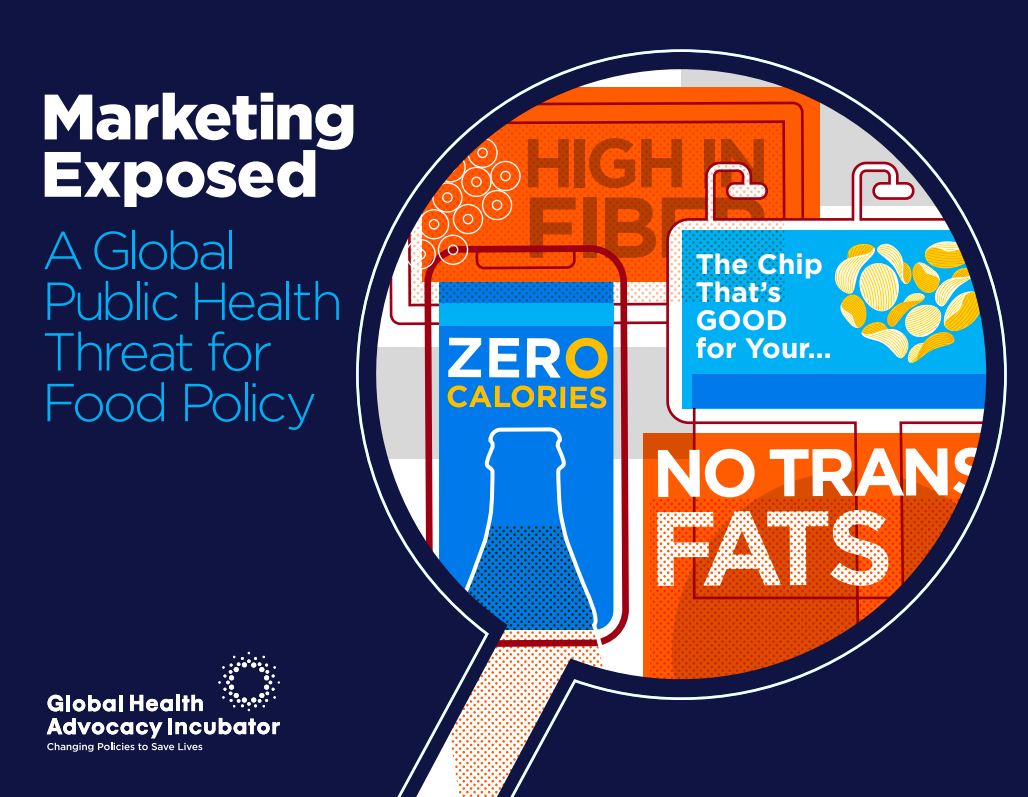El Salvador: Nestlé presented the image of its Fitness cereal, aimed at all who seek to enjoy an active life and the perfect balance between flavor and nutrition. This emphasized its purpose of developing all the power of food to improve the quality of life today and for future generations.
Marketing Exposed: A Global Public Health Threat for Food Policy

Ultra-processed food and beverage corporations are using harmful marketing strategies to promote their unhealthy products. These tactics shape unhealthy food systems populations with detrimental short- and long-term effects.
Advocates around the world are calling on governments to implement strict marketing restrictions and push back against industry tactics.
The Problem
The ultra-processed food and beverage industry’s (UPP Industry UPP industry: refers to the conglomerate of major transnational corporations that widely manufacture and distribute UPPs across the globe and their allies. ) Marketing: The World Health Organization (WHO) has defined it as “any form of commercial communication or message that is designed to, or has the effect of, increasing the recognition, appeal and/or consumption of particular products and services. It comprises anything that acts to advertise or otherwise promote a product or service.”marketing practices lead to unethical behavior when it abuses its power to promote unhealthy products to vulnerable audiences, as evidence shows.
The UPP industry saturates the marketplace with unhealthy products by utilizing tactics that are aggressive, insidious and everywhere, which go beyond the advertisements that are viewed online or on television. Consumers are ambushed with food marketing by the sponsorship of their favorite sports team, the hidden placements in their children’s educational show and the free products that they receive at an event. What is often viewed as innocent commercialism is actual corporate deception that promotes unhealthy diets and contributes to the negative consequences to human and planetary health.
Not only is the UPP industry notorious for failing to take responsibility for its participation in creating an unhealthier planet, but it’s also placing blame on the individual consumer. UPP corporations exploit consumers through deception and undue influence, and also gain privileged spaces in policymaking tables.
At the same time, through corporate washing Corporate washing: an umbrella term used to describe the process of conveying a false impression or providing misleading information about a company's mission, products, or processes. These actions serve to polish industry image, distract the public, and generate a shield against criticism. Most frequent examples from the UPP industry include green-washing (environmental pledges, promotion of plant-based UPP, etc.), social-washing (promises around protecting labor rights, human rights, youth, small businesses, etc.), among others., the UPP industry protects its products, brands and companies from compulsory regulation. The industry’s actions increase its corporate profit which only amplifies its political power to interfere in the broader policy environment, including pushing ineffective corporate solutions such as self-regulation.
Until adequate action is taken, the health and social effects of allowing the UPP industry to continue its risky marketing tactics can threaten global public health.

Healthy Food Policies and Industry Interference Around the World
Throughout 2022, GHAI collected more than 300 examples of corporate practices from more than 52 countries and analyzed the industry tactics observed through a qualitative analysis. The report shows that major corporations influence what consumers eat through deceptive marketing strategies while also gaining privileged spaces in policy making tables.
All the information included in this report has been obtained through ongoing social listening, media monitoring, and direct observations from public sources.
Here are a few examples. More information can be found in the full report.
India: While the country is discussing healthy nutrition policies, Nestlé inaugurated the Nestlé Healthy Kids program in partnership with the National Institute of Food Technology Entrepreneurship and Management. Nestlé’s goal was to create awareness of nutrition and lifestyle among adolescents. Moreover, according to a Global Data report, Nestlé announced a $2M USD donation to provide "food and essential groceries to the needy."
Brazil: Nestlé introduced a floating supermarket in the Brazilian Amazon. This flooded the region with junk UPP that boosted an obesity epidemic among children and displaced traditional food culture and eating patterns.
Colombia: Maggi launched its campaign MAGGI WITH A FLAVOR OF COLOMBIA, using it to "rescue" the cultural diversity of the Colombian regions. Likewise, it promoted people to consume certain products to win others of the brand.
Key Findings
The report highlights how the marketing of UPPs threatens public health by decreasing state action to regulate food environments:
Call to Action
The UPP industry’s harmful and sophisticated marketing practices require immediate, coordinated and urgent action by governments and civil society organizations (CSOs) around the world.
Necessary actions by governments
Enact mandatory and comprehensive corporate marketing restrictions based on independent evidence that’s free of conflict of interest.
Protect children and other populations that are in vulnerable situations or conditions from commercial exploitation. Must also be protected from being a target audience of harmful marketing practices.
Exclude the UPP industry and its allies from the policymaking table and adopt legal frameworks to prevent the industry’s influence.
Necessary actions by CSOs
Advocate for strong, comprehensive, robust, evidence-based, free of COI and mandatory policies to regulate all types of advertising, promotion and sponsorship of UPPs.
Expand the analysis of corporate practices that seek to position UPP brands or products (like CSR initiatives) and engage with organizations, individuals and specific forums because industry ties often happen behind the scenes.
Connect with other actors whose causes are linked to harmful corporate marketing, such as those working in tobacco and alcohol control.











